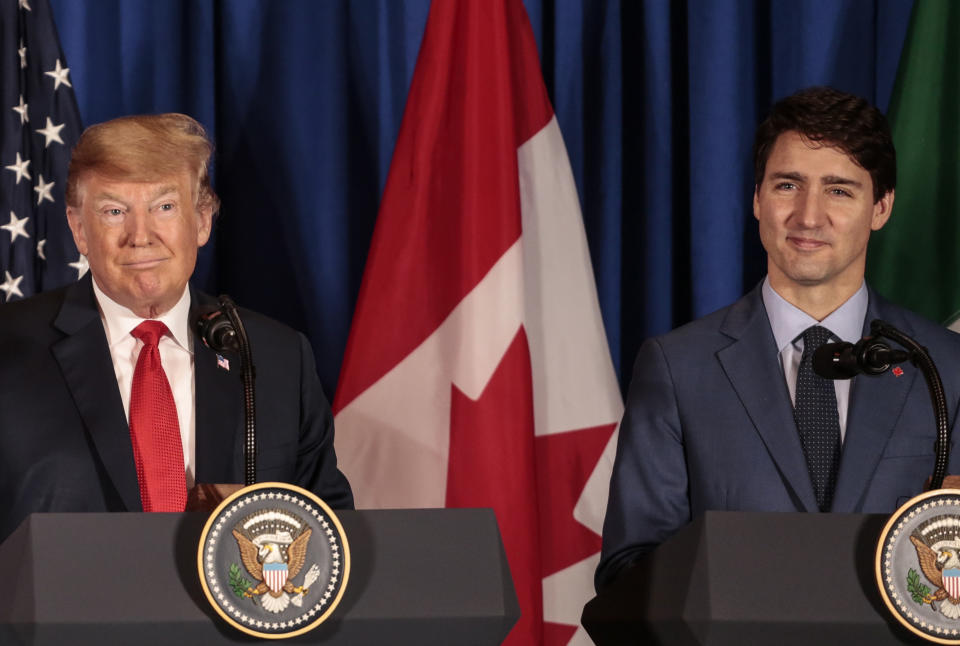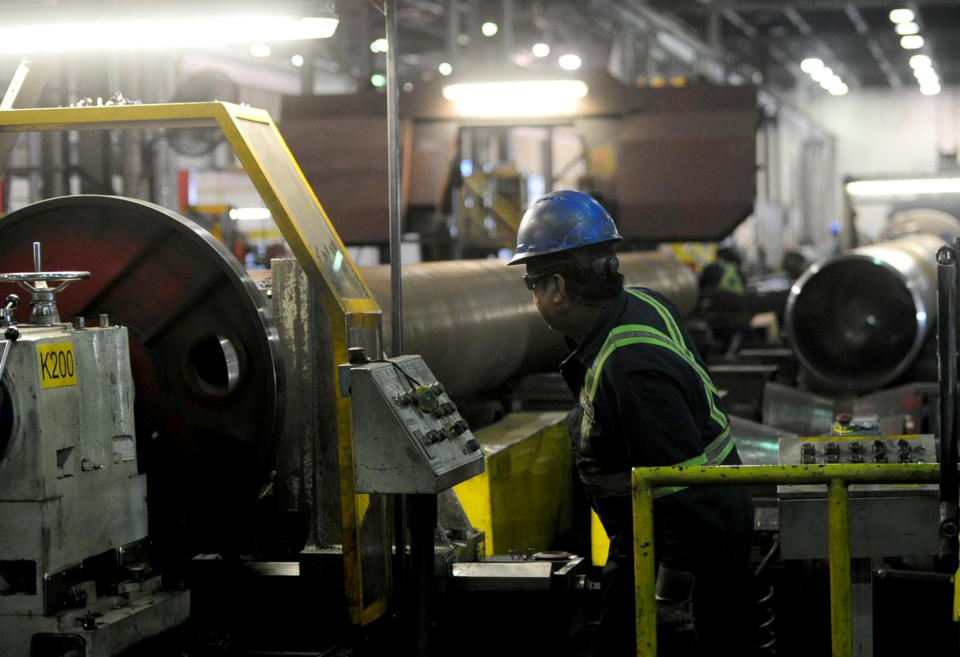Ex-ambassador sums up U.S.-Canada relationship: ‘It’s bad’
On Friday, President Trump signed the new NAFTA deal, known as the United States-Mexico-Canada Act (USMCA), and appeared with Canadian Prime Minister Justin Trudeau at the G-20 summit in Argentina.
But the administration’s relationship with its northern neighbor is still in relatively rough shape.
“Not to sugarcoat it … it’s bad,” former U.S. ambassador to Canada Bruce Heyman, appearing on Yahoo Finance’s Midday Movers, said of the U.S. relationship with Canada.
Trump ‘told falsehoods’ about trade relationship with Canada
During the ceremony, Trudeau called on Trump to remove the tariffs that the U.S. announced on Canada in May 2018. This underscored the tensions between the two countries as a result of the Trump administration’s stance on trade.
The Trump administration placed a 25% tariff on steel and a 10% tariff on aluminum on May 31.

“What [President Trump] did to achieve an outcome — he threatened the Canadians directly,” Heyman said. “He besmirched the prime minister. He went after the foreign minister. He actually told falsehoods with regard to the balance of our trading relationship, which it is in surplus.”
Back in September, when the U.S. was still negotiating with Canada, Trump indicated his displeasure and threatened to levy tariffs on auto imports. He claimed that Canada treated the U.S. “very badly,” especially with its high dairy tariffs.
‘The viewpoint that Canadians have of Americans is at record-low levels’
According to the Associated Press, the USMCA “gives U.S. dairy farmers a bit more access to the protected Canadian market.” In the deal, “Canada has agreed to provide U.S. dairy farmers access to about 3.5% of its approximately $16 billion annual domestic dairy market.”

And while the biggest changes target the auto industry, the USMCA did not put an end to American tariffs on Canada’s steel and aluminum. And overall, a substantial part of USMCA negotiations developed without Canada’s involvement due to continued disputes.
“And so all of that, and then imposing the steel and aluminum tariffs on the basis of national security, are so deeply offensive to Canadians,” Heyman said, adding that “the viewpoint that Canadians have of Americans is at record-low levels, which is most unfortunate for our best friend and next-door neighbor.”
Adriana is an associate editor for Yahoo Finance. Follow her on Twitter @adrianambells.
READ MORE:
Follow Yahoo Finance on Twitter, Facebook, Instagram, Flipboard, LinkedIn, and reddit.



